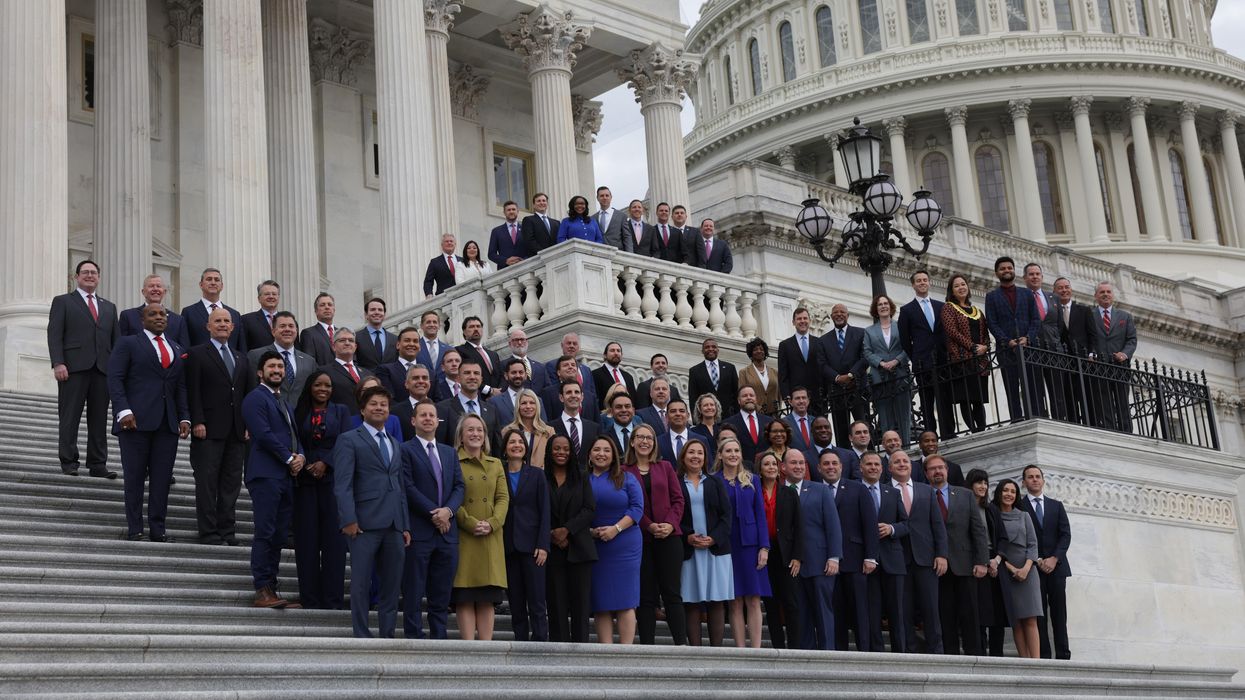Murphy is the director of FixUS, the democracy reform advocacy arm of the Committee for a Responsible Federal Budget, a fiscal policy think tank of which he is also chief of staff. Tomchik is vice president nd deputy chief of staff at FixUS and CRFB
To the new members of Congress,
Congratulations on your election. In just two short months, you’ll take your seat in an institution that has guided and embodied the world’s oldest representative democracy and its people since its founding more than two centuries ago. Sadly, the excitement you may feel at this moment isn’t matched by your fellow citizens.
According to Gallup, only 7 percent of Americans possess a great deal of confidence in Congress. That’s lower than their confidence in the presidency, organized labor, large tech companies and the media. And while none of this is surprising, it should be cause for concern.
The problem stems from the fact that, for many Americans, the first branch of our democracy seems to have little to do with governing. Instead of working together and passing laws, Congress has become a zero-sum game, defined by gridlock and hyper-partisanship. Add to that the endless campaign cycles, self-imposed crises, and back-and-forth bickering in the media, and it’s easy to see why Americans feel as they do.
So, how did it get to this point? And more importantly, as an incoming member of Congress, what can you do about it?
Fortunately, you can find answers in the collective wisdom of the public servants who came before you – dozens of living former elected and appointed officials spanning every presidential administration from John F. Kennedy to Donald J. Trump (whom we surveyed during the current Congress).
If you ask these former mayors, governors, members of Congress, U.S. ambassadors, Cabinet secretaries, and White House chiefs of staff why it seems that good governing is no longer good politics and what can we do about it, they’ll reaffirm your worst fears about the political dysfunction taking place. However, they’ll also offer hope that change is possible and, more importantly, it can begin with you.
For that to happen, you’ll have to recognize, acknowledge and work to overcome two uncomfortable truths – ones you’re likely already familiar with.
First, like most people, elected officials respond to incentives, and our electoral system has built-in incentives that effectively make good governing bad politics. Gerrymandered districts and the outsized role and influence of partisan primaries increasingly yield power to the extreme flanks of both parties and contribute to a system that leads many to choose party over country. Members of Congress spend an inordinate amount of time “dialing for dollars,” raising money for their next election at the expense of devoting time to the task of legislating.
Second, you’ll be increasingly immersed in a media landscape that constantly shifts the focus in Washington from policy to politics and, more specifically, to the politics of outrage. This gradual change has not only stoked our divisions and reinforced information echo chambers, but it also makes agreeing on a common set of facts nearly impossible. It’s hard to govern when you cannot even agree upon reality itself.
The result is governing is too often defined by short-term political gain at the expense of long-term problem-solving. It’s why issues like affordable health care, improving education, fixing our broken immigration system, and addressing our national debt have become perennial topics on the campaign trail rather than the subject of legislative action.
However, all hope is not lost. And the change begins with you as members of Congress.
If you ask your predecessors what is urgently needed given the challenges of today, they’ll tell you – regardless of office held, when they served, or which party they belonged to – that it is not political warriors but leaders who choose to govern with character. It’s those public officials – many you will get to know but who don’t garner as much media attention as the firebrands – who take the time to get to know their fellow members, learn the issues and the facts, know the importance and role of compromise, and who, above all else, practice civility toward others.
The nation you’re about to serve is at a crossroads. In addition to the domestic and international challenges it faces, many are losing faith in our democracy and the very tenet of self-government. Reversing this trend will require reaffirming the constitutional belief that we “affirm that the government of the United States exists to serve its citizens.”
But while your task may be monumental, it is not impossible. It starts by doing the very thing you were elected to do: govern, and in doing so, show good governing can be good politics once again.
Good luck!



















Trump & Hegseth gave Mark Kelly a huge 2028 gift